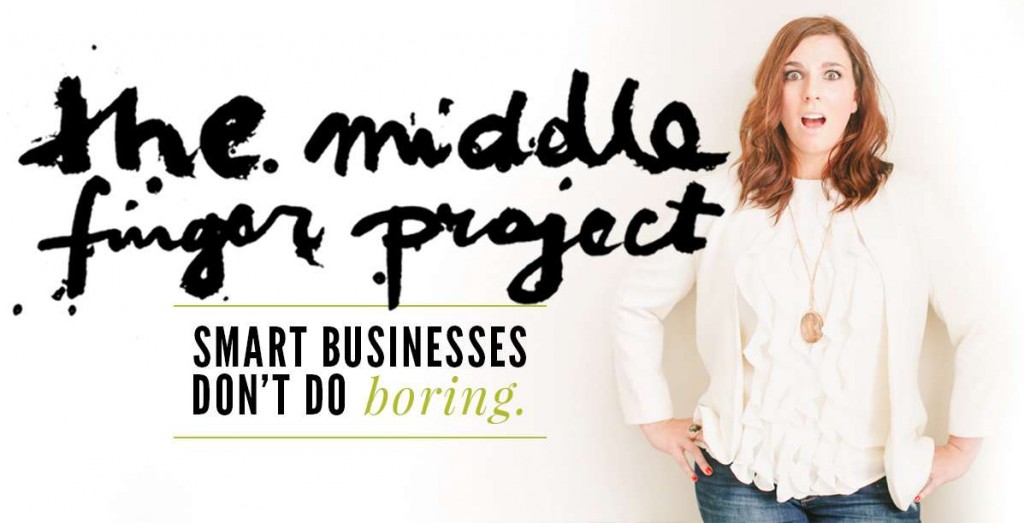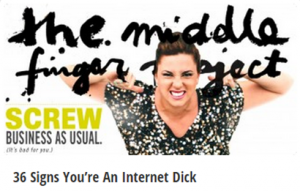 I come from what you’d call a humble background.
I come from what you’d call a humble background.
I grew up in rural poverty in the poorest county of Pennsylvania, where we hung out at stone quarries and had the first day of hunting season off from school.
We lived in a gold and white trimmed mobile home I was horrified of, and I would purposely walk the long way around the block to the bus stop so the other kids wouldn’t know where I lived. (They did.) My mom had a debilitating anxiety disorder, and we lived on a monthly mortgage check we received from the sale of my grandmother’s house, a $200 child support check, and the occasional generosity of my mother’s friends, who I remember lending us money for toilet paper more than once. Our tax return from 1996 lists our total income as $5,290. I was twelve years old.
Despite appearances, we came from a good family in Philadelphia.
My mother’s mother, a strong woman with her own opinions, went off to study at the Moore College of Art in the 1930’s. My mother’s father owned The Harry Cusanek Painting Company, employed three men with two trucks, had a barn on Hermit St. in Roxborough, and was a Grand Knight in the Knight’s of Columbus. They made my mom study prayer, practice the piano, and work on her handwriting daily. My mother and her cousins would help make the big 4th of July float for St. Lucy’s church every year, and one year my mom was even the queen, leading the entire parade. Prim and proper would be a good way to describe the family–until my mother removed her crown and became what you might call a strikingly beautiful black sheep, no longer wishing to keep up with superficial appearances, nor the Jones’. My birth out of wedlock sealed the deal.
In 1990 we moved to Northeastern Pennsylvania, and I spent my pre-teens suddenly wanting everything I never had—and much, much more. I’m not sure where I got such big ideas, given that the most exposure I’d had to the world was what I’d read about in YM magazine, which my mother once purchased for me by paying in installments of $3.00/month via check.
When the 6th grade Washington trip came around and my class had a fundraiser, my mother bought $56 worth of candy and chocolates from me, so I wouldn’t have to face my teachers empty handed. I couldn’t bear walking around the neighborhood, knocking on strangers’ doors and asking them for money like we were encouraged to do–it was mortifying, disgraceful and excruciatingly embarrassing for a shy little girl like me. Especially a shy little girl who lived in a trailer and already felt ashamed as it were.
One week later, she paid back a friend in the amount of $256 with a check memo that said, “Loan and candy money for Ash.” She never shared these hardships with me–I only know because years later, I combed through and studied decades of bank transactions and returned checks.
My mom always found a way to make me feel like I had enough–even if, as it turns out, she had to humble herself by asking others to help hide the secret that we did not, in any way, have enough.
I was fortunate to have a good head on my shoulders, as all the teachers would write in my report cards, and it soon became my dream to someday escape Susquehanna County, return to our roots in Philadelphia, and become the CEO of some fancy company, wearing fancy business suits and working in fancy office buildings. I worked hard throughout high school and landed a full private scholarship to college, billed at $40K a year, courtesy of the very generous and kind-hearted Andy McKelvey, founder of Monster.com, who was my mentor and who changed my life.
A few months before my college graduation, however, my mom suddenly passed away, leaving me orphaned in the strangest of ways.
I was forced to put on my big girl panties, picking out funeral homes, writing obituaries, and figuring out what to do with our belongings and the credit card debt my mom had left behind. It was…a real mind fuck. But ultimately, the hard times gave me even more motivation. When you’ve got no one to turn to, you don’t turn. You leap, instead.
A couple of months later, I sold the trailer that had haunted me throughout my youth, said goodbye to Susquehanna County, moved back to Philadelphia and got my very first job in marketing. It was the first time I ever saw an Infiniti, or an Audi. I’d take long drives through suburban new home developments, silently oohing and ahhhing brick homes that looked like mansions, complete with perfectly manicured lawns…and moms. I often wondered if this would have been my future had we never moved away–but then I would remind myself that I didn’t need fate. I had fury. And fury, as I saw it, was a much better insurance policy.
Today, I’m the CEO of my own family of businesses, have been humbled by $100,000 months, and have gotten significantly better at knocking on doors.
 In fact, I like to think that knocking on doors evolved into a superpower of mine, so to speak, after spending half a lifetime afraid of what the person would say on the other side. … And after seeing my mom struggle to knock on her own.
In fact, I like to think that knocking on doors evolved into a superpower of mine, so to speak, after spending half a lifetime afraid of what the person would say on the other side. … And after seeing my mom struggle to knock on her own.
Just the other day I consulted with a well-known author who decided he wanted to revive an old comic strip he once loved as a boy. In the fall, he and I had discussed ways he might pitch the parent company to grant him a license to do just that, and just the other day, he was granted one. He’s now embarking on a three-book series that sets out to modernize this character, and we needed to come up with a catchy tagline. We did just that, and as I was getting off the phone with him, I congratulated him once more. He did a very good job knocking on the right door.
Many of the people that go through Guts and decide to start their own businesses–they’re doing a good job of knocking on the only door that counts. Their own.
So, what’s the difference between the person who knocks and the person who doesn’t? I don’t know. Maybe it’s personality. Maybe it’s self-esteem. Or maybe it’s no longer having a choice.
While my choice was made for me through a series of events that made my path quite inevitable, you might not have a choice, either—whether you know it yet or not.
No longer having a choice happens every time we feel so passionately about something–and can no longer NOT act. No longer having a choice happens when we’re relentlessly compelled to TRY–and can no longer bear witness to our own cowardice. No longer having a choice happens when we’ve finally reached our own personal tipping points, and can no longer continue to falsify our own existence, because we know anything less makes us frauds to ourselves.
No longer having a choice might just become the best thing that ever happened to you.
Backing yourself into a corner might just be the only way out.
And dreaming with your eyes open–even when you’ve got to walk around the block the long way, pay in $3 dollar/month installment plans, gawk in awe at expensive suburban mansions and knock on every door you see–doesn’t make you a dreamer.
It makes you a future.
One not even the murkiest of fates can prevent.



Add Comment